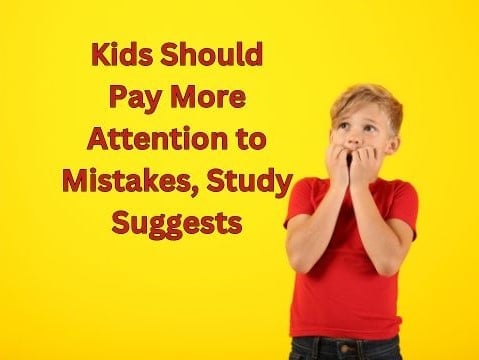
At Edublox, students are encouraged not to shy away from their mistakes. They are told, “You may make mistakes; try your best, we’ll correct any mistakes afterward.” Now, research has shown that children who believe intelligence can grow to pay more attention to and bounce back from their mistakes more effectively than kids who think intelligence is fixed.
According to scholars at Michigan State University, the research suggests that teachers and parents should help children pay more attention to their mistakes so they can learn from them instead of shying away from or glossing over mistakes.
“The main implication here is that we should pay close attention to our mistakes and use them as opportunities to learn,” said Hans Schroder, lead author of the study and a fifth-year doctoral student in MSU’s Department of Psychology.
Published online in the journal Developmental Cognitive Neuroscience, the study is one of the first investigations into mindsets and the related brain workings of children. The average age of the participants was seven, when most children are making the difficult transition to formal schooling and when mindsets have their most noticeable impact on academic achievement.
For the experiment, 123 children were assessed on whether they had a growth mindset (believing people can work harder to get smarter) or a fixed mindset (believing intelligence is set in stone).
The children then took a fast-moving accuracy task on a computer while their brain activity was recorded. The task: Help a zookeeper capture escaped animals by pressing the spacebar when an animal appeared — unless it was a group of three orangutans helping the zookeeper capture the other animals, in which case they had to withhold their response.
Within half a second after making a mistake, brain activity increases as the person becomes aware of and pays close attention to what went wrong. Essentially, a bigger brain response means the person is focusing more on the error.
Children with growth mindsets were significantly more likely to have this larger brain response after making a mistake in the study. In addition, they were more likely to improve their performance on the task after making a mistake.
The study also showed that children with fixed mindsets could bounce back after their mistakes, but only if they paid close attention to the errors. Previous research indicated that people with a fixed mindset don’t want to acknowledge their mistakes. Some people will even start talking about something else they’re good at as a defense mechanism. However, the current findings suggest that the more they attend to their errors, the more fixed-minded children may recover as well as their growth-minded peers.
Many parents and teachers shy away from addressing a child’s mistakes, telling them, “It’s OK, you’ll get it the next time,” without allowing them to figure out what went wrong, Schroder said.
“Instead, they should say: ‘Mistakes happen, so let’s try to pay attention to what went wrong and figure it out.’”
